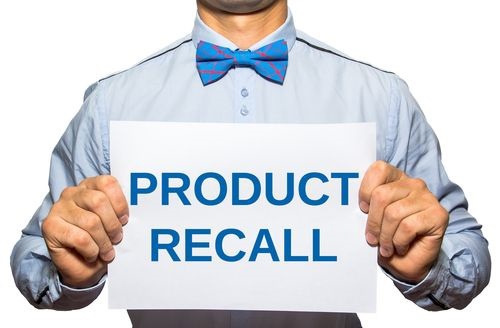


The sluggish recall of more than 1.8 million Volkswagen cars in China has led to a heated online debate over foreign companies’ discrimination against Chinese consumers, with experts and media outlets criticizing the country’s defective laws and lack of enforcement.
The recall, which applies to vehicles made between 2007 and 2015, will notify affected owners to replace the fuel pump control modules starting from Dec. 25, as a potential electronics failure in the fuel pump may cause the engine to stall. Many netizens have accused the world’s biggest car makers of neglecting Chinese consumers while recalling problematic vehicles in other nations.
“Double standard” has been imposed on Chinese consumers by foreign companies in many international recall incidents. In August, McDonald announced its plan of cutting global antibiotic use in chickens, without listing China in the first batch of countries where highest priority critically important antimicrobials are prohibited in 2018. A similar scenario unfolded with Johnson & Johnson. Among its 51 recalls of unqualified products from 2005 to 2013, 48 were not conducted in China, even if most of its commodities are sold in the nation, according to Xiakedao, the WeChat account of People’s Daily overseas edition.
Based on the statistics from Xiakedao, over 30 similar recall discrimination incidents have taken place in China in the past decade, involving prominent international companies, including Apple and Nestle. Experts point out that a major cause of the incidents lies within the underdevelopment of China’s recall system and relative legal support.
China issued its first Regulation on the Administration of Recall of Defective Auto Products in 2004, some 38 years after the U.S. Though additional regulations have been established, lenient punishments and weak legal implementation have cost Chinese consumers the most, making them less proactive to fight for their lawful rights.
Despite of the current laxity in consumer protection in China, the country has already made huge progress in tackling recall discrimination. By the end of 2016, a year after China launched its regulation on the recall of defective consumer goods, authorities initiated 163 recalls, affecting over 4.8 million defective goods, up 738 percent compared to that in 2015.
 Fire brigade in Shanghai holds group wedding
Fire brigade in Shanghai holds group wedding Tourists enjoy ice sculptures in Datan Town, north China
Tourists enjoy ice sculptures in Datan Town, north China Sunset scenery of Dayan Pagoda in Xi'an
Sunset scenery of Dayan Pagoda in Xi'an Tourists have fun at scenic spot in Nanlong Town, NW China
Tourists have fun at scenic spot in Nanlong Town, NW China Harbin attracts tourists by making best use of ice in winter
Harbin attracts tourists by making best use of ice in winter In pics: FIS Alpine Ski Women's World Cup Slalom
In pics: FIS Alpine Ski Women's World Cup Slalom Black-necked cranes rest at reservoir in Lhunzhub County, Lhasa
Black-necked cranes rest at reservoir in Lhunzhub County, Lhasa China's FAST telescope will be available to foreign scientists in April
China's FAST telescope will be available to foreign scientists in April "She power" plays indispensable role in poverty alleviation
"She power" plays indispensable role in poverty alleviation Top 10 world news events of People's Daily in 2020
Top 10 world news events of People's Daily in 2020 Top 10 China news events of People's Daily in 2020
Top 10 China news events of People's Daily in 2020 Top 10 media buzzwords of 2020
Top 10 media buzzwords of 2020 Year-ender:10 major tourism stories of 2020
Year-ender:10 major tourism stories of 2020 No interference in Venezuelan issues
No interference in Venezuelan issues
 Biz prepares for trade spat
Biz prepares for trade spat
 Broadcasting Continent
Broadcasting Continent Australia wins Chinese CEOs as US loses
Australia wins Chinese CEOs as US loses